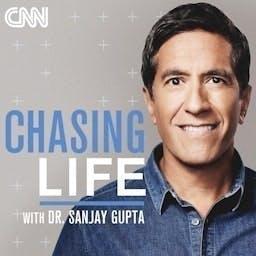EHV-1 has dominated online conversation in recent weeks—but not all the information circulating reflects the science. In this episode of Equine Innovators, we step back from the noise to focus on what researchers and clinicians know about how equine herpesvirus infects horses, how it spreads, why latency matters, and what drives the neurologic form of the disease.
Host Stephanie Church, editorial director at The Horse, speaks with Dr. Abby Sage, equine technical services veterinarian for Zoetis and a former state veterinary official, and Dr. Lutz Goehring, professor of equine infectious diseases at the University of Kentucky’s Gluck Equine Research Center. Sage and Goehring explain what testing can—and cannot—tell us during an outbreak, clarify common misconceptions, and outline how vaccination and biosecurity fit into a thoughtful response.
The conversation also looks ahead, exploring emerging diagnostic tools, vaccine research, and unanswered questions about viral reactivation and neurologic risk. Whether you’re a veterinarian or a horse owner navigating heightened concern, this episode offers grounded perspective and practical context.
In this episode, Dr. Lutz Goehring and Dr. Abby Sage discuss:
- How EHV-1 spreads and why outbreaks occur regularly, even when they don’t make headlines
- What differentiates respiratory infection from equine herpesvirus myeloencephalopathy
- How veterinarians interpret PCR testing and where stall-side tools fit
- What vaccination can realistically achieve, and what it cannot
- Which biosecurity measures matter most at home and on the road
- Where current research on EHV-1 is headed next
Tune in to hear how two equine veterinarians break down equine herpesvirus-1 transmission, testing, neurologic disease, and prevention.
GUESTS AND LINKS – EPISODE 24:
- Host: Stephanie L. Church, editorial director at The Horse: Your Guide to Equine Health Care/TheHorse.com | @stephlchurch on Instagram | Email Stephanie ([email protected])
- Links: (EHV-1 and other resources from TheHorse.com) Special Feature: Everything You Need To Know About EHV-1 | Discussion of the Valencia, Spain, EHV outbreak: EHV-1 in 2022 | Biosecurity Tips to Protect Your Horse
- Links: (EHV-1 and other infectious disease information from the AAEP’s Equine Disease Communication Center) Latest EHV Alerts | Horse Owner Webinar EHV-1 Updates
- Guest: Dr. Lutz Goehring | Lutz Goehring, DVM, MS, PhD, Dipl. ACVIM, graduated as DVM from Utrecht University, in the Netherlands. He is a board-certified specialist in veterinary internal medicine (large animal) of the American College of Veterinary Internal Medicine (ACVIM) and of the European College (ECEIM) of Equine Internal Medicine. Goehring is the Warren Wright Sr.-Lucille Wright Markey Endowed Chair in Equine Infectious Diseases at the University of Kentucky’s Gluck Equine Research Center, in Lexington. His Lutz Goehring Research Group focuses on equine herpesvirus type 1 and its interaction with its exclusive host, the horse.
- Guest: Dr. Abby Sage | Abby Sage, VMD, MS, Dipl. ACVIM, earned her veterinary degree from the University of Pennsylvania School of Veterinary Medicine (Penn Vet) and is board-certified in large animal internal medicine. Sage was on faculty in the section of sports medicine at Penn Vet’s New Bolton Center, in Kennett Square, and then at the University of Minnesota, in St. Paul, where she served as the head of the large animal internal medicine section. She spent 10 years in private practice as an internal medicine specialist at Blue Ridge Equine Clinic, in Earlysville, Virginia, before she joined the Virginia State Veterinary Office, in Richmond, where she ran the equine programs. In 2023 she joined Zoetis as an equine technical services veterinarian. Sage has authored numerous scientific papers on equine internal medicine, ultrasound, and cardiology.
- Link: Register for free newsletters from TheHorse.com
Please visit our sponsor, who makes this podcast possible: Zoetis Equine | @ZoetisEquine on Instagram, Facebook, and YouTube


































